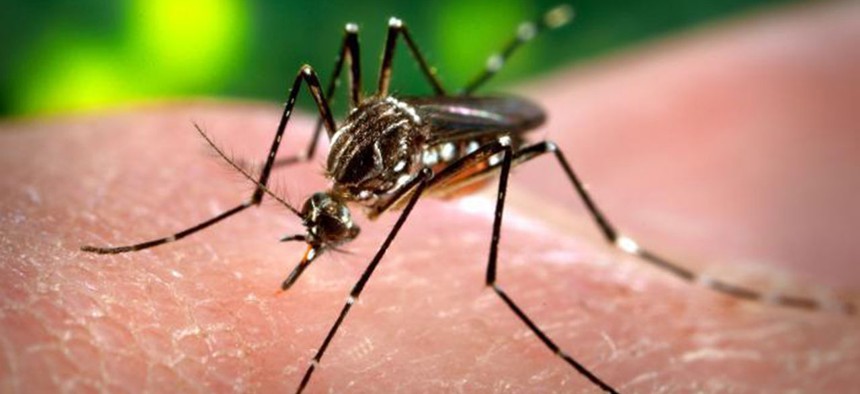
James Gathany/CDC
The EPA Has Approved The Release of Weaponized Mosquitoes In 20 U.S. States
Biotech firm MosquitoMate says it has the green light to release its bacteria-infected mosquitoes, which prevent the insects from multiplying, into the open.
The US Environmental Protection Agency has given its approval for MosquitoMate, a Kentucky-based biotechnology company, to release its bacteria-infected male mosquitoes in several parts of the United States.
The EPA approval was first reported by Nature on Monday, and confirmed by the company. The EPA didn’t immediately respond to a request for comment from Quartz.
We are excited to announce EPA approval, please read all about it and thanks to @NatureNews for the great announcement! https://t.co/sIchal7qFM
— MosquitoMate (@MosquitoMate) November 6, 2017
The company’s lab-grown mosquitoes, which it calls ZAP males, are infected with the Wolbachia bacteria, naturally occurring in many insects, but not in Aedes aegypti, a vector for viruses such as yellow fever, dengue and Zika. When bacteria-infected males mate with uninfected females, the females produce eggs that don’t hatch. In addition, infected mosquitoes are less likely to spread disease.
According to Gizmodo, the EPA on Nov. 3 registered MosquitoMate’s mosquito as a biopesticide, with a five-year license to sell in 20 different states. Entomologist Stephen Dobson, CEO of MosquitoMate, told Gizmodo that the company could start selling the infected mosquitoes next summer via contracts with government bodies and direct to homeowners, beginning with Lexington, Ky. and expanding to nearby areas like Nashville, Tenn. Quartz reached out to MosquitoMate for comment, and will update when we hear back.
The permitted states include mostly those similar weather conditions to Kentucky, New York, and California, states where the company earlier conducted trials—as well as Washington DC. In April, the company began a 12-week field trial that involved releasing 20,000 male Aedes aegypti mosquitoes in Stock Island, in the Florida Keys. The male mosquitoes don’t bite, which should make the release of these insects sound less alarming.
Other countries have been using lab-produced mosquitoes to reduce their populations. In China’s southern city of Guangzhou, scientists used a similar method to control the insects’ population by building a mosquito factory that produced millions of Wolbachia-infected male mosquitoes last year. Brazil has used the bacteria-infected mosquitoesin its campaign against the Zika virus.
Brazil has also tried the use of a different kind of lab mosquito, one that is genetically modified, which has faced resistance in the US.






